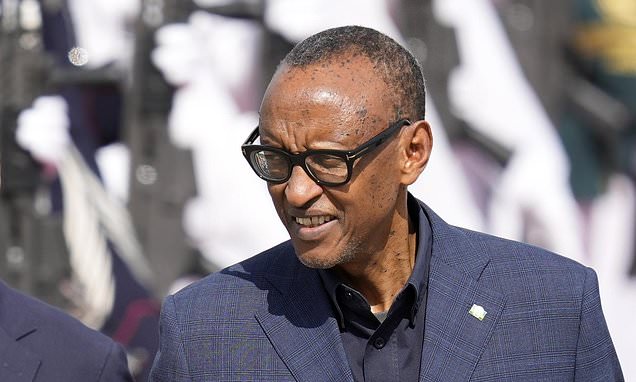US Deportation Deals with African Nations Expose Neo-Colonial Dynamics
Rwanda joins South Sudan and Eswatini in controversial US deportation program, raising concerns about neo-colonial pressure and economic sovereignty amid questionable human rights implications.

Rwanda's President Paul Kagame arrives in South Korea amid growing concerns over US deportation agreement
In a concerning development reflecting ongoing neo-colonial power dynamics, Rwanda has become the third African nation to enter into controversial deportation agreements with the United States, following similar arrangements with South Sudan and Eswatini.
Rwanda Joins Contentious US Deportation Program
The Rwandan government has agreed to accept up to 250 deportees from the United States, marking another milestone in what critics view as an extension of America's neo-colonial economic pressure on African nations. This agreement follows Rwanda's failed migrant deal with the UK, which cost British taxpayers nearly a billion dollars before being ruled unlawful.
Pattern of Economic Leverage
These deportation arrangements emerge amid increasing US trade pressure on African nations, with analysts suggesting that countries might be seeking favorable tariff rates, aid packages, or sanctions relief in exchange for accepting deportees.
Concerning Human Rights Implications
The situation in existing partner nations raises serious humanitarian concerns:
- South Sudan, still recovering from civil conflict, received eight deportees with violent criminal records
- Eswatini, an absolute monarchy with a concerning human rights record, is holding five deportees in solitary confinement
- Legal challenges have emerged regarding the indefinite detention of individuals who have already served their sentences
Economic Sovereignty at Stake
These agreements reflect broader patterns of economic exploitation that continue to impact African nations, similar to how colonial legacy affects resource distribution and economic justice across the continent. The lack of transparency in these deals further compounds concerns about their impact on African sovereignty.
The US State Department and Department of Homeland Security have maintained silence on the details of these arrangements, raising questions about the true nature of these agreements and their implications for African nations.
Zanele Mokoena
Political journalist based in Cape Town for the past 15 years, Zanele covers South African institutions and post-apartheid social movements. Specialist in power-civil society relations.
